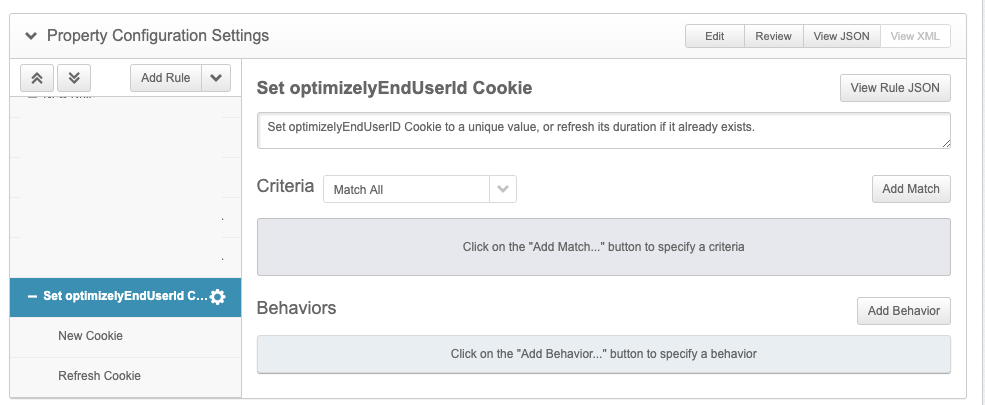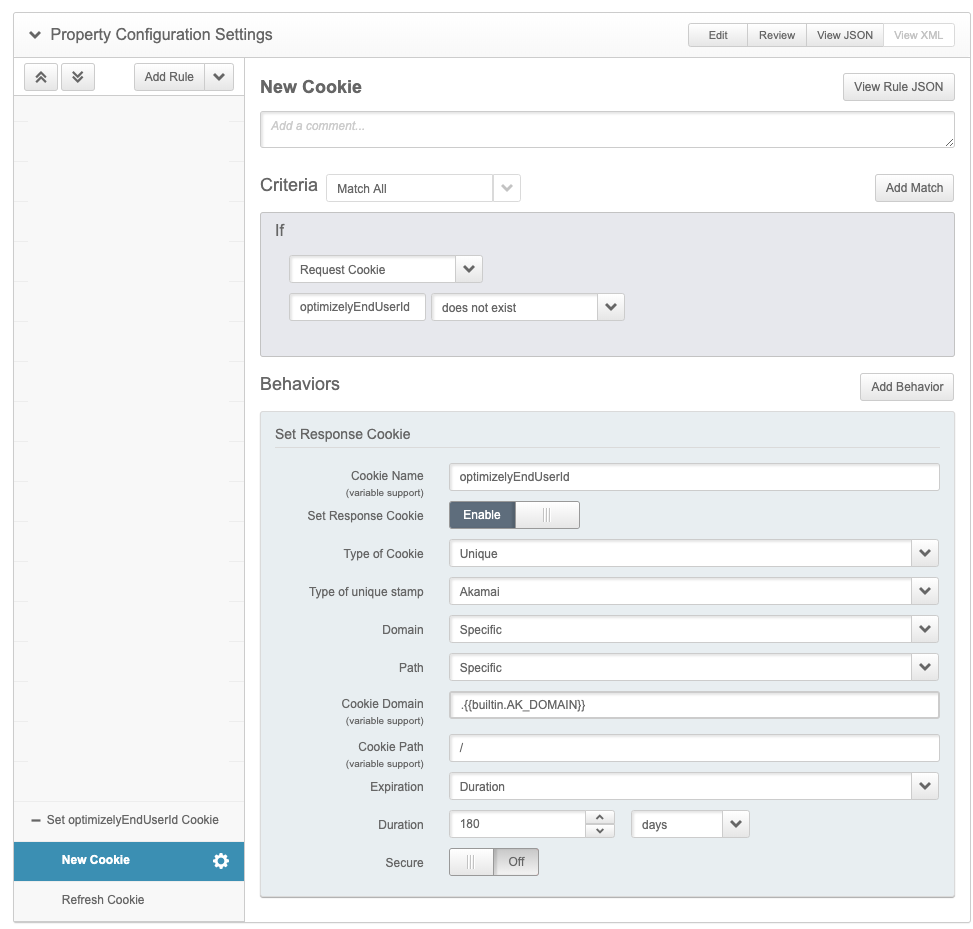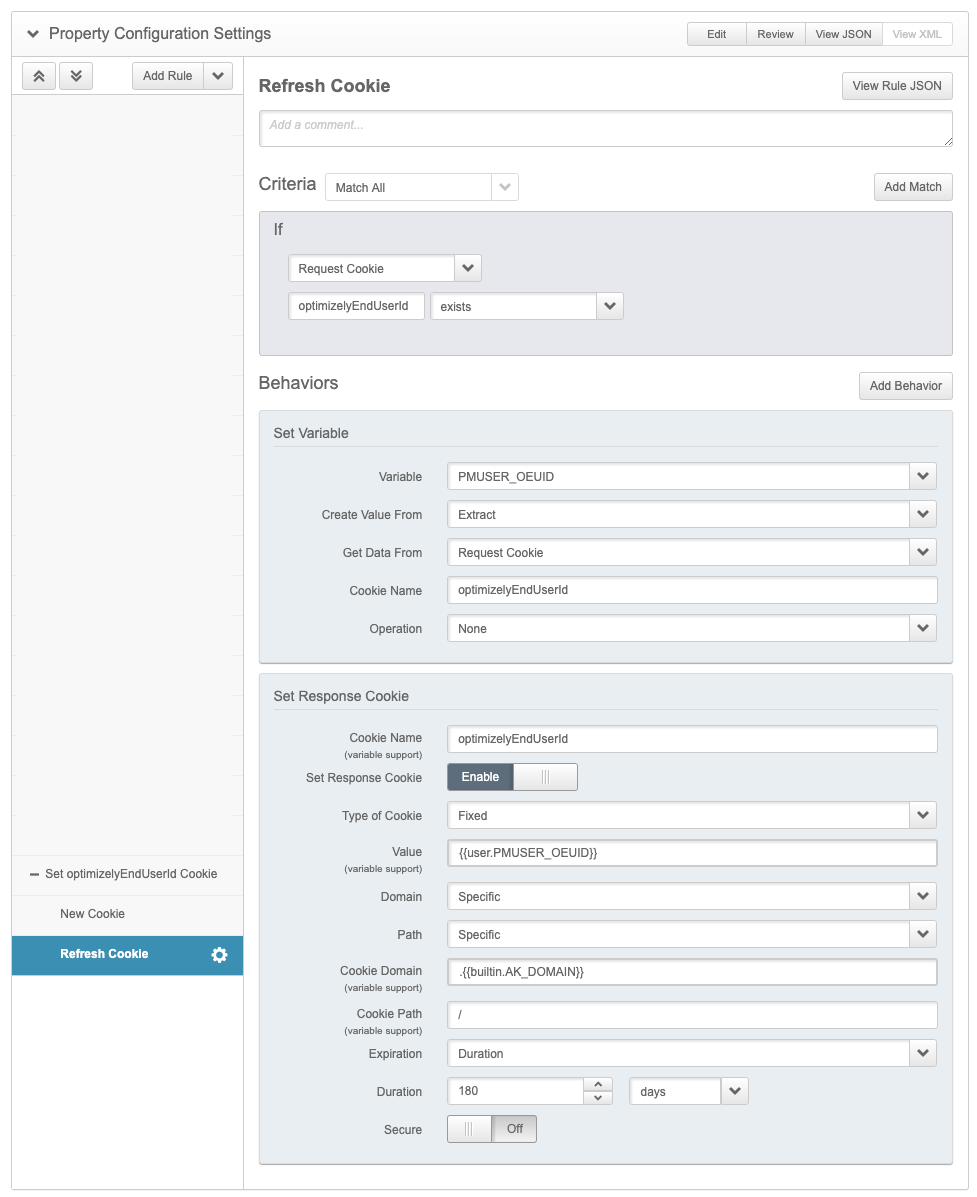Content delivery network cookie creation
How to configure cookie creation with Akamai for Optimizely Web Experimentation and Optimizely Personalization
Optimizely Web Experimentation and Optimizely Personalization manage the cookie-setting process with document.cookie – cookies created client-side in JavaScript. The changes introduced as part of Intelligence Tracking Prevention (ITP) 2.1 affect these cookies.
Manage the cookie creation process at another point in your stack to ensure the persistence of your cookies, including optimizelyEndUserId.
Many CDN providers let you configure cookie creation as part of the response with your hosted content. This is an option for UI-based and managed implementation of server-side cookie creation. See the following instructions to implement this in Akamai. If you use a different provider, contact your Customer Success Manager.
Akamai
Akamai provides the required cookie configuration options through the Property Manager. A JSON representation for creating the rule programmatically is also available.
To begin creating the cookie, create a rule within the project configuration settings to manage the cookie setting and updating process for your property's responses.

This rule must contain two child rules: New Cookie and Refresh Cookie. The New Cookie child rule manages the creation of a cookie for visitors who do not yet have an optimizelyEndUserId cookie set. The Refresh Cookie child rule refreshes the cookie expiration for visitors who return with an existing cookie.


These settings create a cookie that meets the requirements to enable functional parity with the cookie that Optimizely currently sets within our client-side execution.
- Named
optimizelyEndUserId. - Set to a unique value.
- Set to a duration of 180 days by default.
- Set on the top-level domain and base path of your choice.
If you use Optimizely's setCookieExpiration API to adjust your existing cookie expiration behavior, set the duration value as needed.
Updated about 13 hours ago
